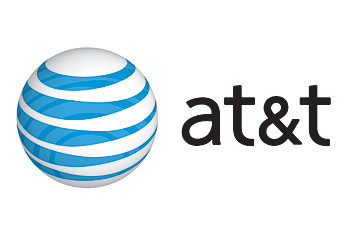
Do corporations have personal privacy rights? Should they be legally protected from being embarrassed?
It sounds absurd, but the Supreme Court will hear arguments next month in a case in which AT&T is claiming it has a right not to be embarrassed by the disclosure of documents that could show that it overcharged for its services. But here's what's even more absurd: given the procorporate tilt of the current court, it is likely that AT&T will prevail.
FCC v. AT&T is a fight over documents relating to the telecom giant's work for the New London, Conn., school system. AT&T was working on a Federal Communications Commission program that provided telecommunications equipment and services to the schools. In August 2004, AT&T discovered that it had overcharged the FCC for the work, owned up to it and worked out a settlement with the FCC.
But that didn't end the matter. In 2005, a trade organization representing some of AT&T's competitors filed a Freedom of Information Act (FOIA) request seeking documents from the investigation — documents AT&T wanted to remain secret.
Congress passed FOIA in 1966 with the intention of making governmental operations more transparent. The law created a strong presumption that government documents requested by a member of the public would be turned over.
There are some exceptions built into FOIA, and AT&T wanted the FCC to invoke one of them: Section 7(c), which bars release of law-enforcement information when it "could reasonably be expected to constitute an unwarranted invasion of personal privacy." The documents involved law-enforcement information since they were collected as part of the FCC's formal investigation of the overbilling, but the FCC nevertheless reasonably concluded that Section 7(c) did not apply to AT&T's documents because humans have personal privacy and corporations do not.
When the FCC was preparing to release the documents, AT&T appealed. It argued that the courts have long held that corporations are "persons" under the law, and that it could therefore have "personal privacy."
Then in 2009 the Philadelphia-based U.S. Court of Appeals for the Third Circuit agreed, saying that the company was eligible for the personal-privacy exemption. To justify its disturbing decision, the court made the bizarre claim that "corporations, like human beings, face public embarrassment, harassment and stigma."
In reaching this ruling, the court made the mistake of focusing on the word person rather than the phrase personal privacy. It is true that corporations are "persons" under the law for some purposes, such as being able to own property or enter into contracts. (But not for others: 18-year-old corporations are not allowed to vote and they cannot be drafted.) It does not follow, though, that corporations have personal privacy. Until now, courts have interpreted Section 7(c) as applying to intimate personal details like health status, alcohol use, marital status and the legitimacy of children — information that could prove embarrassing to the individuals involved.
Put simply, corporations cannot be embarrassed because they do not have emotions. They are nonhuman entities created to make money. They can be successful if they turn a profit, or fail if they show a loss — but they cannot feel good or bad about either outcome.
Congress has even long acknowledged this basic fact. As a result, it created a separate FOIA privacy exemption for corporations. Section 4 covers "trade secrets and commercial or financial information" — in other words, the privacy is appropriately focused on information that could put them at a competitive disadvantage. AT&T, however, did not rely on Section 4 because it is likely that, under it, the investigative documents could be released.
This case is about more than just the fine points of how FOIA should be read. It also demonstrates the disturbing lengths to which courts are now going to create new rights for corporations. In recent years, the Supreme Court has repeatedly found new ways to insulate corporate wrongdoers from paying large punitive-damages awards imposed by juries. Earlier this year, the court reversed many decades of established law to find that corporations have a First Amendment right to spend money in federal elections.
If that's not bad enough, this expansion of corporate rights comes at a time when the court has been scaling back the rights of people. Well-founded sex-discrimination claims, challenges to cruel prison conditions and other lawsuits involving wronged human beings are routinely being rejected without basis.
When the founders drafted the Constitution, they started with the phrase "We the people." They did not include the word corporation at all. Despite this, the Supreme Court seems intent on increasing the rights of entities created for the limited purpose of making money, while scaling back protections for actual living, breathing Americans.
Cohen, a lawyer, is a former TIME writer and a former member of the New York Times editorial board. Case Study, his legal column for TIME.com, appears every Wednesday.
